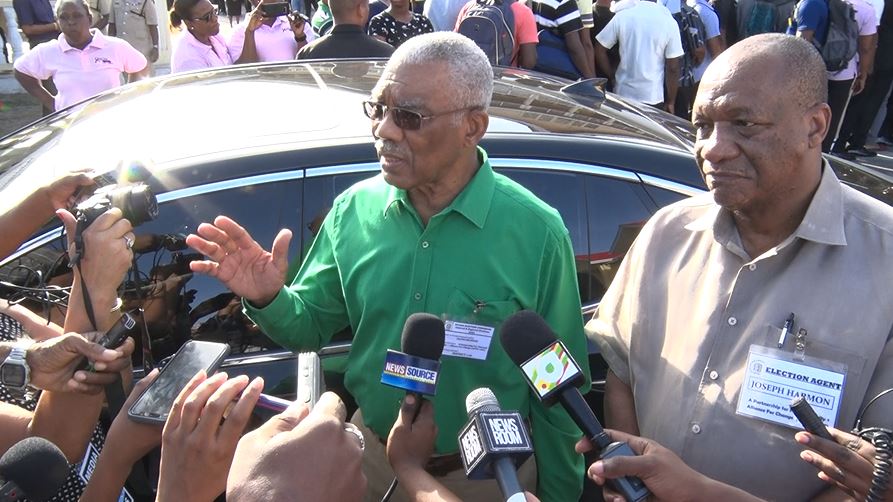
The Guyana Elections Commission (GECOM) has defended its decision to reduce the number of private residences to be used as polling stations for the March 2, 2020 general and regional elections.
Speaking with the media during the Joint Services voting process on Friday, Chairperson of GECOM, retired Justice Claudette Singh, said the reduction came as a result made by elections observer missions in the past.
She alluded to the Carter Center, which in its report after the 2015 national elections, noted that while the location does not negatively influence public confidence in the electoral process, GECOM should ensure that citizens can cast their ballot in a neutral environment.
“Those have been reduced because they’re using public buildings, it’s not that the polling stations are removed in the area, it’s just the private residences –they’re moving away from those…well that was a recommendation made by the Carter Center…Why would you use private residences when you have a public place?” she told the media at the Brickdam Police Station shortly after witnessing the police officers voting process.
In 2015, GECOM used 166 private residences but has decreased this sum to 92 for March 2nd.
In the cases where the private residences will be used, Chief Elections Officer Keith Lowenfield said it is absolutely necessary.
“There is absolutely no public or other building that could have been used in these instances and therefore we had no choice. The residents of those particular sub-divisions have to vote,” he affirmed.
The People’s Progressive Party/Civic (PPP/C) has protested the decrease in the use of private residences in its stronghold areas. It described the decision of GECOM as “another attempt to frustrate voters, suppress and hinder voting and create possible confusion on Elections Day.”
The party’s Executive Secretary, Zulfikar Mustapha up to Friday contended that some voters will be disenfranchised since they will now have to travel long distances than usual to vote.

He said in Mon Repos on the East Coast of Demerara for example, there were previously ten polling places but that has been reduced to two.
“Although the number of polling stations will remain the same, those polling stations will be accommodated now, in two polling places in one compound…the logistics there will be challenging,” he added.
President and Leader of the APNU+AFC Coalition, David Granger on the other hand said some of the polling places at private homes have been obscure in the past but there is no plan to disenfranchise anyone.
“In the past when the PPP was in Government, it was apparent to us that some of the private residences were so obscure that many of us couldn’t find them and some were changed at the last minute,” Granger said.
He stopped himself from further addressing the issue noting that it is a matter to be dealt with by GECOM. However, the President assured that it is not the intention of Government nominated Commissioners on GECOM or his Government’s plan to disenfranchise anyone.
There are more than one polling stations at one polling place.
GECOM in fact increased the polling stations from 2,299 in 2015 to 2,339 in 2020. This is a further increase from 2011 where there were 2083 polling stations.






